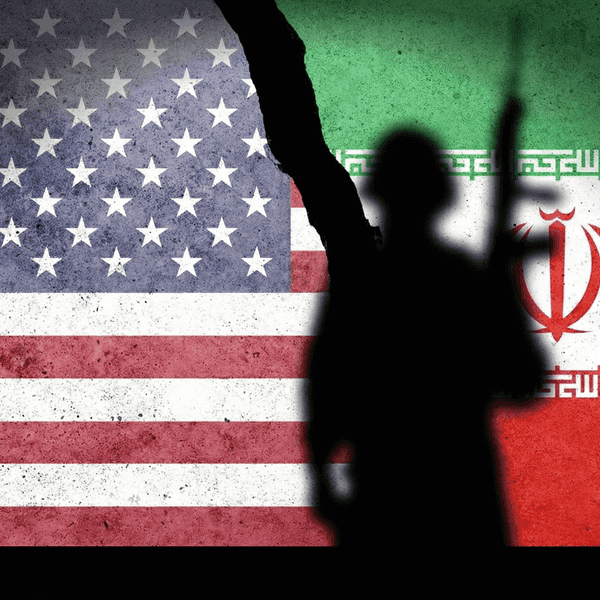They married for love, hid for 20 years, and died the day they came home
Zafar and Farzana returned to Mardan after decades on Eid al-Adha. By evening, they were dead in an honor killing

Kamran Ali
Correspondent Nukta
Kamran Ali, a seasoned journalist from Khyber Pakhtunkhwa, Pakistan, has a decade of experience covering terrorism, human rights, politics, economy, climate change, culture, and sports. With an MS in Media Studies, he has worked across print, radio, TV, and digital media, producing investigative reports and co-hosting shows that highlight critical issues.

The couple, Zafar and Farzana, had built a life hundreds of miles away in Punjab's Faisalabad district.
Nukta
Muzaffar Iqbal from Mardan district in Pakistan's Khyber Pakhtunkhwa (KP) province will never forget June 15, 2025—the day his brother and sister-in-law finally returned to their ancestral village in Mardan district after nearly 20 years away.
The couple had built a life hundreds of miles away in Punjab's Faisalabad district.
Their homecoming should have been a celebration. Instead, it ended in unspeakable violence—allegedly at the hands of the sister-in-law’s own relatives in what authorities are investigating as an "honor killing."
‘They fled for love, returned to die’
Muzaffar's voice trembles as he recounts the tragic story of his brother Zafar Iqbal and sister-in-law Farzana - a couple who paid the ultimate price for daring to marry for love two decades ago.
"They left Mardan in fear of their lives after their love marriage [without family’s consent]," Muzaffar told Nukta, explaining how the couple had cut off all ties with Farzana's family and built a new life in Faisalabad.
"For 20 years, they never dared to return - until Eid al-Adha this year, when they accepted my invitation to visit."
Following Muzaffar's complaint, authorities have registered a First Information Report (FIR) under Section 302 (murder) and Section 311 (honor killing) of the Pakistan Penal Code, naming five primary suspects in the double homicide case.
Investigators revealed the alleged involvement of a family insider. “Our probe has uncovered that Tariq, Muzaffar's brother-in-law, leaked information about the couple's visit to the perpetrators," said Investigation Officer Munir Khan.
"We've already taken him into custody and are closing in on the remaining accused.”
The brutal slaying has once again cast a spotlight on Pakistan’s struggle with gender-based violence, where archaic notions of family “honor” continue to claim lives despite legal reforms and growing public outcry.
Just a month earlier, an 18-year-old boy, Adnan, and his wife were gunned down in Peshawar by his maternal uncle, who had allegedly opposed their love marriage since the day it took place, nearly a year ago.
528 honor killings in one year
The tragic cases of Zafar and Adnan are far from isolated incidents. Data paints a disturbing picture of escalating gender-based violence, with KP police recording 149 honor killings in the province alone over the past year.
The crisis extends nationwide, according to a Human Rights Commission of Pakistan (HRCP) report, documenting 528 honor killings across Pakistan in 2024—an average of more than one murder a day. Punjab topped the list with 178 reported cases, followed by 134 in Sindh and 67 in Balochistan.
‘Patriarchal norms’
Mehwish Muhib Kakakhel, a family lawyer and women’s rights activist, said honor killings stem from entrenched patriarchal norms and tribal customs that equate a family’s dignity with a woman’s conduct.
“Traditionally, it was about defying male authority—often through a marriage of choice—but now even unverified social media posts or AI-edited images can provoke deadly violence,” she noted.
Speaking to Nukta, Saima Munir, Aurat Foundation’s focal person in Peshawar, said the notion of “honor” is selectively invoked—almost always when a woman asserts her rights.
“Why is it never questioned when men deny women their inheritance or freedom of choice? Why doesn’t it apply when a girl is handed over as ‘Wani’ to settle disputes between families?” she asked, calling the concept deeply patriarchal and inherently unjust.
Law against honor killing
The Criminal Law (Amendment) Act, 2016, removed a key loophole that had long allowed perpetrators of honor killings to evade punishment through familial forgiveness. Under the revised law, courts are empowered to impose a mandatory life sentence, even if the victim’s legal heirs pardon the offender.
Nouman Kakakhel, an advocate at the Peshawar High Court, maintains that while the law against honor killings is sufficiently robust, proving a murder as an “honor killing” remains nearly impossible in practice.
“In most instances, both families are complicit — they destroy or manipulate evidence, often claiming the death was natural, accidental, or a suicide,” he said.
Kakakhel adds that the conviction rate in such cases is virtually non-existent — not due to legal gaps, but because of how the law is applied, adding that while the 2016 amendment to the Criminal Law Act technically removed the forgiveness loophole, courts may still accept out-of-court settlements if “honor” is not explicitly proven, while the actual number of incidents is far higher than reported.
“There have been cases where girls are taken away and killed by joint decision of both families, with the bodies quietly buried in secrecy,” he explained.
Challenges for investigators
Masood Bangash, Superintendent of Police, told Nukta that honor killings often involve close family members, which significantly hampers investigations.
“In most cases, the victim and perpetrator belong to the same household, making it extremely difficult to obtain witness statements,” he said.
Such crimes typically occur behind closed doors, giving families ample time to tamper with or erase evidence. “They frequently claim it was a suicide and often refuse a post-mortem examination, preventing us from establishing the cause of death,” he added.
Bangash also pointed to a lack of forensic capacity, delayed reporting, and community pressure as further hurdles that obstruct justice in such cases.
Way forward?
Kakakhel noted that despite stronger legislation against honor crimes, enforcement and investigation remain inadequate.
“Unless police enhance their investigative approach—by tracing communications, interrogating all involved, including family elders, and not limiting probes to just the nominated accused—such cases will continue to go unresolved and honor killings will persist,” he said.
Mehwish called for swift prosecution, protection mechanisms for at-risk women, and legal action against AI-generated or doctored content used to incite violence.
Long-term reform, she said, depends on education, digital literacy, and community engagement. “Religious and tribal leaders must be part of the solution, and jirgas that endorse such killings must be held accountable,” she added.
Saima emphasized that society must accept that women have the right to make their own choices. “Women have a will and a voice — and they can exercise both on their own terms,” she said.
She also stressed the need to engage youth in dismantling patriarchal attitudes and promoting the importance of women’s consent. “Unless we change this mindset, honor crimes will persist,” she warned.







Comments
See what people are discussing